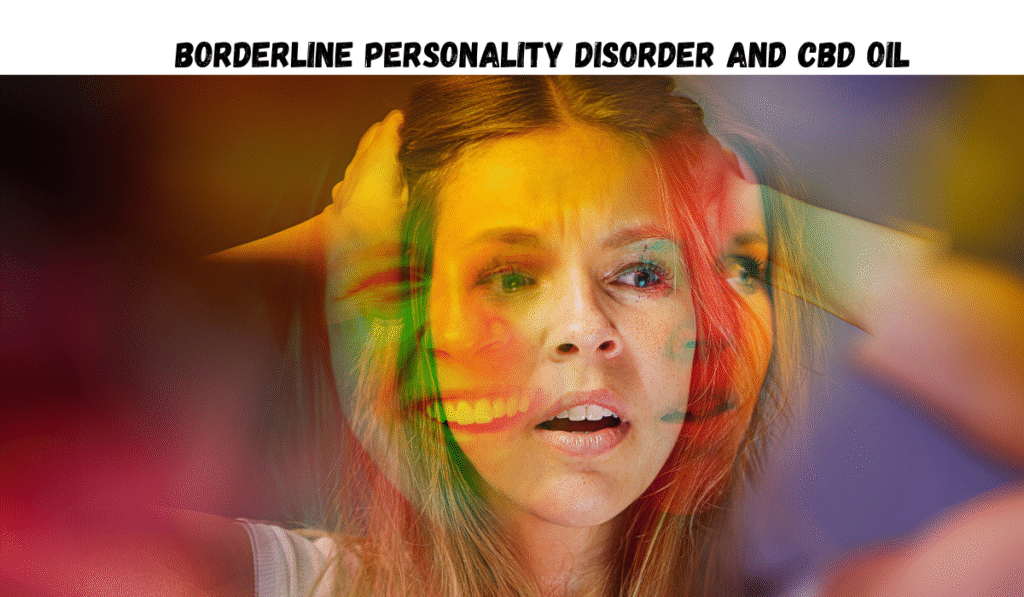Borderline Personality Disorder (BPD) is a complex mental health condition characterized by intense emotional instability, impulsive behavior, and challenges in maintaining relationships. With growing interest in alternative remedies, many individuals are exploring the potential benefits of CBD oil as a complementary approach for managing symptoms. This article delves into how Borderline Personality Disorder and CBD oil intersect while addressing frequently asked questions about lifestyle adjustments, job suitability, and triggers for individuals with BPD.
Borderline Personality Disorder
BPD affects approximately 1-2% of the population and can significantly impact daily life. Common symptoms include mood swings, fear of abandonment, self-harming behaviors, and difficulty managing interpersonal relationships. While traditional treatments like psychotherapy and medication remain pivotal, some individuals seek complementary therapies to enhance overall well-being.
What is CBD Oil, and How Does It Work?
Cannabidiol (CBD) oil, derived from the hemp plant, is a non-psychoactive compound known for its potential therapeutic effects. Unlike tetrahydrocannabinol (THC), CBD doesn’t induce a “high.” Instead, it interacts with the endocannabinoid system (ECS) in the body, which plays a role in regulating mood, stress, and sleep.
CBD oil has gained attention for its calming properties, making it a possible ally for those managing the emotional intensity of BPD. Early studies suggest that CBD may help reduce anxiety, improve sleep quality, and promote a sense of emotional balance.
The Connection Between Borderline Personality Disorder and CBD Oil
While there’s no direct cure for BPD, CBD oil may offer relief for certain symptoms. Here’s how:
Reducing Anxiety and Stress
Emotional dysregulation is a hallmark of BPD. CBD has been studied for its anxiolytic properties, which can help manage the heightened anxiety often experienced by individuals with BPD.Improving Sleep Patterns
Poor sleep can exacerbate mood instability. By promoting relaxation, CBD may improve sleep quality, providing a more stable foundation for emotional health.Supporting Emotional Regulation
CBD’s influence on serotonin receptors may contribute to mood stabilization, potentially helping individuals feel more grounded during challenging moments.
What Jobs Are Good for People with Borderline Personality Disorder?
Finding fulfilling work is an essential step toward stability for those with BPD. The ideal job should align with the individual’s strengths while providing a structured, low-stress environment. Here are some suggestions:
Creative Roles
Jobs in art, writing, or design allow individuals to channel their emotions into creative expression, which can be therapeutic.Helping Professions
Careers in counseling, social work, or peer support may appeal to those who wish to use their experiences to help others.Freelancing or Remote Work
Flexible jobs that allow individuals to manage their workload can reduce stress and accommodate therapy or self-care routines.Animal Care
Working with animals can provide a calming and rewarding experience, ideal for individuals seeking emotional grounding.
While career choices are deeply personal, finding a supportive work environment and prioritizing mental health can lead to professional success.
What Aggravates Borderline Personality Disorder?
Certain factors can intensify BPD symptoms, making it crucial to identify and minimize triggers. Here are common aggravators:
Unstable Relationships
Conflict or perceived rejection in relationships can provoke feelings of abandonment or anger.High-Stress Situations
Prolonged stress, whether from work or personal life, can lead to emotional dysregulation.Substance Abuse
Alcohol or drug use may exacerbate impulsivity and mood swings, leading to worsened symptoms.Lack of Structure
An unstructured lifestyle or unpredictable routines can heighten feelings of chaos and instability.
What Should I Avoid If I Have BPD?
Managing BPD involves adopting a lifestyle that minimizes triggers and promotes emotional balance. Here’s what to avoid:
Toxic Relationships
Surrounding oneself with supportive individuals and avoiding toxic relationships is critical for emotional stability.Negative Self-Talk
Practicing self-compassion and avoiding self-criticism can help reduce feelings of inadequacy or guilt.Overcommitment
Saying “yes” to everything can lead to overwhelm. Setting boundaries is essential.Neglecting Self-Care
Skipping therapy sessions, ignoring physical health, or failing to engage in relaxing activities can worsen symptoms.
How to Calm Down a BPD Episode?
When experiencing a BPD episode, it’s important to have strategies in place to regain control. Here are some effective techniques:
Practice Grounding Techniques
Engaging in mindfulness exercises or focusing on sensory experiences (e.g., holding an ice cube) can help shift attention away from intense emotions.Deep Breathing
Controlled breathing can lower heart rate and promote a sense of calm.Engage in Physical Activity
Activities like yoga, walking, or dancing release endorphins, which can improve mood and reduce stress.Use CBD Oil
In moments of heightened anxiety, CBD oil may help promote relaxation. Sublingual administration allows for quicker absorption and faster effects.Seek Support
Talking to a trusted friend, family member, or therapist can provide reassurance and perspective during an episode.
Incorporating CBD Oil into a BPD Management Plan
If you’re considering using CBD oil for BPD, it’s important to approach it thoughtfully:
Consult a Professional
Speak with a healthcare provider to ensure CBD won’t interact with other medications or therapies.Start with a Low Dose
Begin with a small amount of CBD oil and gradually increase as needed to gauge its effects.Monitor Effects
Keep a journal to track how CBD impacts your mood, sleep, and stress levels over time.Choose Quality Products
Opt for reputable brands that offer third-party lab testing to ensure purity and potency.
A Holistic Approach to BPD Management
While CBD oil offers potential benefits, it’s not a standalone solution. Combining it with established treatments like Dialectical Behavior Therapy (DBT), regular exercise, and a healthy diet can enhance overall well-being. Additionally, cultivating a strong support network and maintaining a consistent routine are invaluable for long-term stability.
Conclusion
Borderline Personality Disorder is a challenging condition, but with the right tools and support, individuals can lead fulfilling lives. CBD oil may serve as a helpful complement to traditional treatments, offering relief from anxiety, mood instability, and sleep disturbances. By understanding what aggravates BPD, avoiding harmful triggers, and choosing suitable jobs, individuals can take proactive steps toward stability and growth.
If you’re considering CBD oil, consult with a healthcare provider to ensure it aligns with your treatment plan. Remember, recovery is a journey, and every step—no matter how small—brings you closer to a balanced, fulfilling life.

